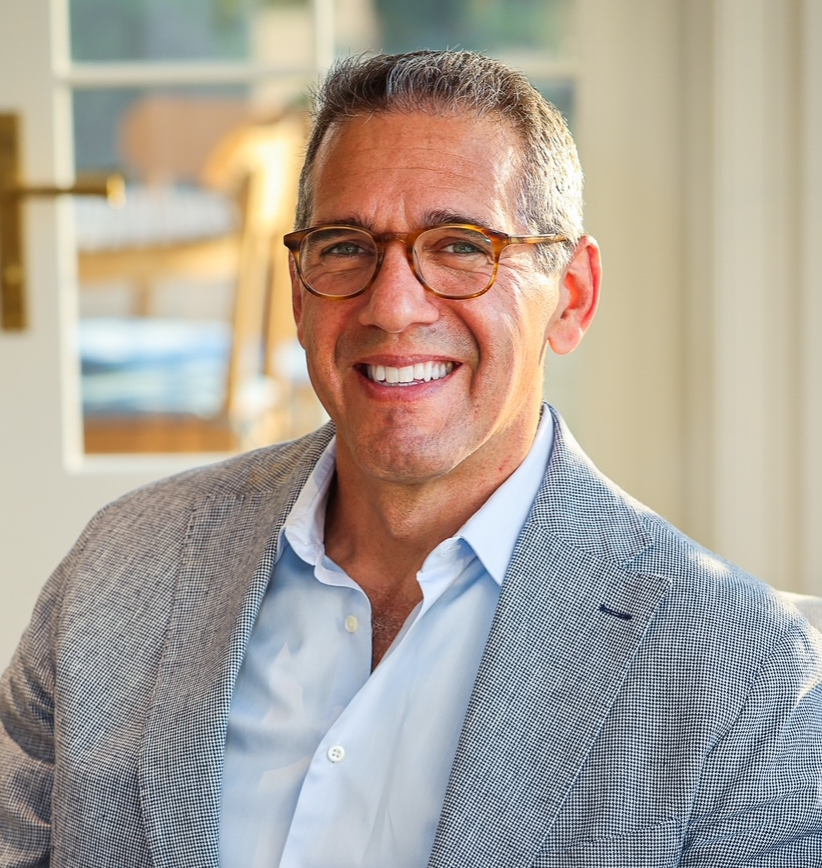From the U.S. Department of Justice, to the U.S. Senate, to running a global logistics company, to serving and founding numerous not-for-profits, Richard Phillips’s career has spanned public policy, public service and private sector leadership. As an undergraduate and graduate student, Richard focused on the impacts of a fast-changing post-World War II U.S.-European relationship on the rise of nationalism and terrorism in the Middle East. In 1997, with degrees from Yale, Cambridge and Georgetown, Richard went to work at the Justice Department, where he served as lead counsel for the United States in constitutional litigation involving sensitive national security and high technology issues. In that capacity he was the government’s lead counsel for the Department of Defense, Central Intelligence Agency, National Security Agency, and other national security entities in several ground-breaking cases. He defended federal gun control legislation and helped ensure critical health care for veterans. He also handled high profile diplomatic immunity cases.
Richard then served as Senate Judiciary Committee Counsel to Senator Edward M. Kennedy, and later to Senator Patrick J. Leahy. While on Senate staff, Mr. Phillips was responsible for advising Senators Kennedy and Leahy on matters involving civil rights, voting rights and voter protection, technology, free trade, intellectual property, and privacy. He spearheaded the multilateral negotiations that ultimately allowed fair pay for artists and recording studios for the digital distribution of their work, allowing the advent of services such as Spotify and Pandora. He later served as Senior Transatlantic Fellow for the German Marshall Fund, a global organization dedicated to strengthening transatlantic cooperation on regional, national, and global challenges in the spirit of the Marshall Plan.
In 2005, Richard returned to Philadelphia to become more involved in the family business. Richard came on as Vice-Chairman of Pilot Freight Services, supervising the company’s top executives. In 2007, Richard took over as CEO of Pilot.
Under Richard’s leadership, Pilot saw remarkable growth. Revenue nearly quadrupled to nearly $1 billion. Annual earnings grew almost thirty-fold to $75 million. The company provides critical supply chain and logistics services to many of the world’s largest and most complex corporations. It also handles mission-critical shipments for the U.S. military, supporting both combat and relief operations around the world, including high-need shipments into war theaters. During Richard’s tenure as CEO and later Chairman, Pilot undertook a cultural and ethical turnaround that encouraged the dignity of employees and promoted ethical leadership throughout the company, while resolving years of mishandled funds and tax evasion. He increased Pilot’s international capabilities and opened overseas offices throughout Asia, Europe and Central and South America. Under his leadership, Pilot also became a global leader in e-commerce fulfillment and is the carrier of choice for the largest e-commerce companies in the world. It opened automotive, as well as value-added logistics and warehousing divisions, and its own customs brokerage. This diversification helped the company to prosper even through difficult economic conditions. In 2012 Richard was recognized as Entrepreneur of the Year for the Philadelphia Region. In 2016, Richard led the sale of a controlling share of Pilot to a private equity consortium. In 2022, he and the consortium completed the sale of Pilot to Maersk International for a reported value exceeding $1.7 billion.
In 2018, Richard accepted a fellowship at the Yale Divinity School, where he worked to place human dignity at the center of private enterprise and entrepreneurism. He has spoken around the world, to such groups as the Young Presidents Organization, the Chief Executives Organization, the Central Intelligence Agency, U.S. Special Operations Command, and in various academic settings on leadership and ethics. In 2023, Richard accepted a fellowship at Harvard’s Advanced Leadership Initiative, where he studied and taught the moral and spiritual foundations of effective leadership. He currently teaches “The Spiritual Lives of Leaders” at Harvard Business School, as well as various classes on moral and spiritual leadership at Harvard Law School. His focus is on helping current and future leaders stay grounded in their own values as they face the difficult choices that leadership demands.
Richard is heavily involved in the community. In 2007 he was appointed by Governor Edward G. Rendell, and confirmed by the Pennsylvania Senate, to the Pennsylvania State Planning Board. He has served as a member of the Board of Directors of the Melmark Home for Developmentally Disabled Children, where his brother was a student. He is a trustee of the Center for the Study of the Presidency and Congress, and serves on its Commission on Civility and Effective Governance. In 2016, he co-founded the Keepers of the Commons, a non-profit organization that helps community and non-profit leaders to access top-tier leadership training and networks. He also co-founded the Pennsylvania 30 Day Fund, which helped over one thousand small businesses navigate COVID-19 disruption through forgivable loans. He has served as Chairman of the Philadelphia Chapter of the Young Presidents’ Organization, and is a co-founder of the Aspen Institute’s Leadership Council, a small group tasked with helping the organization execute a strategic overhaul of it numerous programs and operations. He is the recipient of numerous awards for service to the community, starting with the Lawton M. Calhoun Prize “for doing the most to make the College a happy place” which he received as an undergraduate, to the Maguire Award for Outstanding Service to the Philadelphia Community. He has been selected as a delegate to the U.S.-European Young Leaders and U.S.-Spain Young Leaders programs.
In 2023, Richard co-founded the Aspen Institute’s Leadership Council. He moderates in the Institute’s Executive Seminars as well as for the Aspen Global Leaders Network. In his free time he enjoys flying, rowing, and volunteering with his dog Noelle as a therapy team in hospitals, retirement communities, and with children with learning differences.
Richard has made too many mistakes—large and small—to count.

